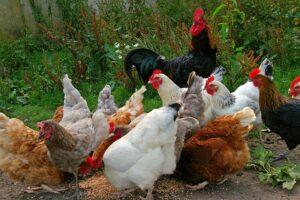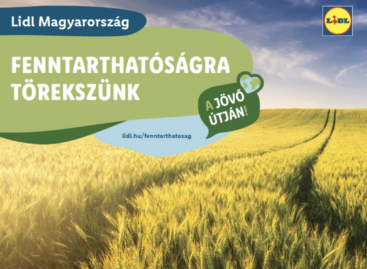The poultry sector can remain competitive with continuous development
The poultry sector has remained a competitive and exportable livestock sector despite recurring animal diseases, the covid epidemic, the energy crisis and the hardships of war, said the Deputy State Secretary for Agricultural Markets of the Ministry of Agriculture on the occasion of World Poultry Day.

(Photo: Pixabay)
At the professional event organized in Vajdahunyadvár in Budapest, Tamás Tarpataki called the poultry sector the most competitive livestock sector, and at the same time thanked the producers and breeders who ensure the production and export value of the sector despite the difficulties experienced in the last three years. But, as he said, there is no way to sit back, many challenges still have to be faced. Sustainability and environmental protection aspects are getting stricter and consumer needs are constantly changing. The environmental protection, animal welfare, and sustainability expectations of customers no longer extend only to the product, but also to its production conditions, said the deputy state secretary.
The deputy state secretary also touched on the fact that continuous development is necessary to maintain the sector’s competitiveness
For this, the Ministry of Agriculture provides all the help – which consists of regulation and support. The subsidies available for livestock breeding are diverse: from investment and animal welfare subsidies, through compensation and crisis subsidies, to gene preservation, breeding organization and subsidized loans, they are made up of many elements into a coherent whole. Tamás Tarpataki announced the good news: in the new Common Agricultural Policy, all the forms of support that have been available until now, in fact, in the 2nd pillar, are higher, in total, three times as many funds are available thanks to the 80 percent co-financing of the Hungarian government. So far, more than 600 development investments from the Rural Development Program have been implemented with a subsidy of HUF 175 billion.
AM
Related news
The majority of Hungarians spend less than 50 thousand forints on Christmas gifts, sustainability is an important aspect, but not the primary one
Gift-giving is an essential holiday tradition, but what really matters…
Read more >Lidl has published its 3rd sustainability report
Lidl Hungary’s sustainability report for the 2022/2023 business years has…
Read more >ESG – about sustainability standards, from a legal perspective
Since December 2023 several pieces of legislation have been published…
Read more >Related news
The Joy of Giving! – SPAR stores collect non-perishable food for people in need
The Hungarian Maltese Charity Service and SPAR Hungary have launched…
Read more >Technological advancements and business travel
The latest research from International Workplace Group (IWG), the leading…
Read more >K&H: a gift, but what and from which store?
When it comes to Christmas gift-giving, clothes are the most…
Read more >








